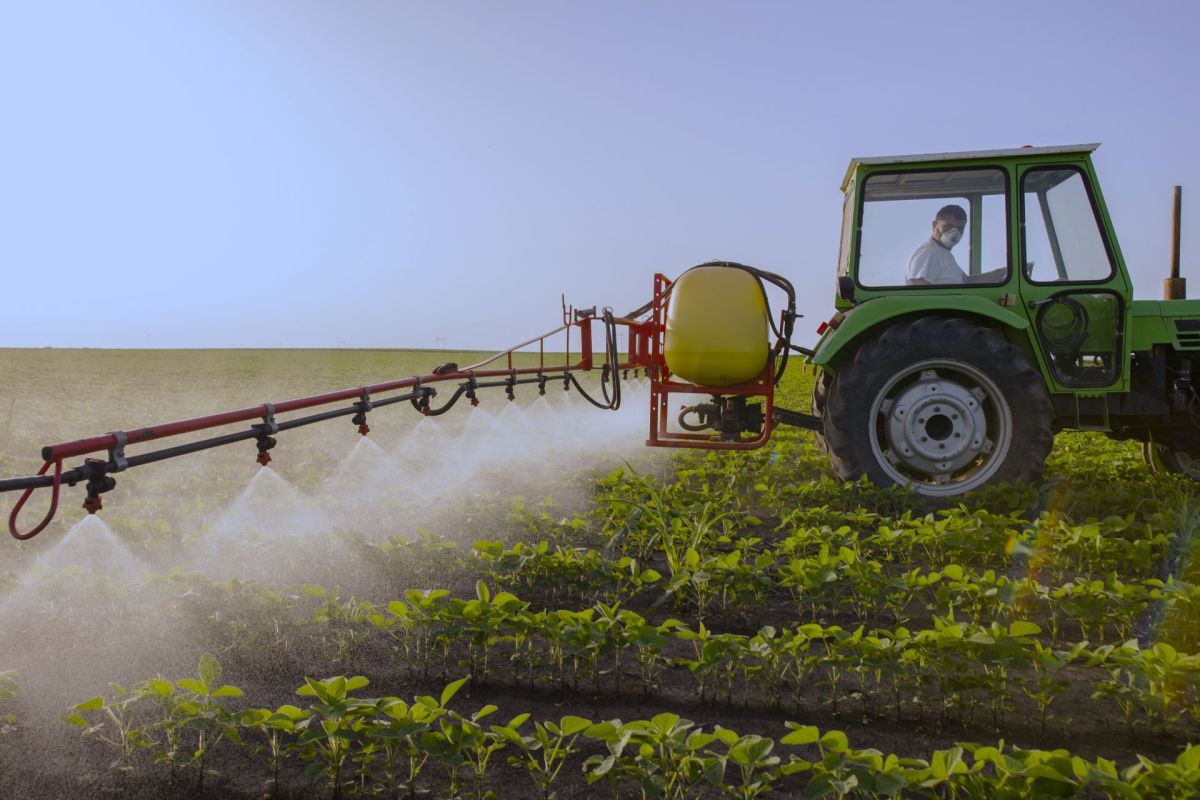Following a proposed decision announced in April 2023 to let farms use a pesticide that's dangerous to people and the planet, the Environmental Protection Agency has come under fire for not, well, protecting the environment.
What is happening?
According to environmental news outlet the New Lede, the EPA is planning to allow farmers to use a pesticide called chlormequat chloride on edible crops. Previously, the pesticide was used only on crops not meant for human consumption, like decorative plants.
But now, the EPA is moving to let farmers use the chemicals on several grains that wind up in foods like cereals and granola bars.
Why is the new use of this pesticide concerning?
Some farming organizations are happy about the EPA's decision, according to The New Lede, because the pesticide reportedly prevents grains from bending and breaking, which means a better (more profitable) harvest. But some health and environmental officials feel very differently about the proposal.
Studies have shown that chlormequat chloride is linked to reproductive and developmental health issues. The New Lede reports that because most of the harm was seen only in animals and at high doses, the EPA decided not to conduct further studies on how the chemicals might harm human infants. But experts believe that was a negligent decision.
Phil Landrigan, a professor of public health, told The New Lede that the EPA has "a legal duty to protect infants and children against the toxic effects of pesticides. … And they appear not to have taken that responsibility seriously."
The use of pesticides isn't only harmful to people — it's also dangerous to animals. Even though the general purpose for using pesticides is to fend off critters that destroy crops, sometimes the chemicals make their way to unintended victims. The water runoff from farms that use pesticides can make its way to nearby bodies of water, harming the local wildlife.
What can you do to avoid pesticides in your food?
You can do your part to keep your family healthy and not support companies that use pesticides by buying organic food.
The USDA label "organic" applies to all foods that have been grown without the help of harmful synthetic substances that are prohibited by the U.S. Department of Agriculture.
If something isn't labeled as organic, never assume that it's pesticide-free. One study found that 12 out of 13 nonorganic cereal and granola products tested contained chlormequat pesticides.
Whenever you can, shop local, as local producers often refrain from using the harmful pesticides and herbicides that are commonly used by commercial farmers. Since locally grown foods are typically distributed near the same place they are grown in, there is no need for treatment with preservatives and other chemical treatments that commercial farmers use to extend the shelf life of their crops, explains farm shipping container manufacturer Pure Green.
Shopping organic and local helps keep you and your family safe from the possible harmful effects of pesticides and supports farms that do not use these dangerous chemicals.
Join our free newsletter for cool news and actionable info that makes it easy to help yourself while helping the planet.









